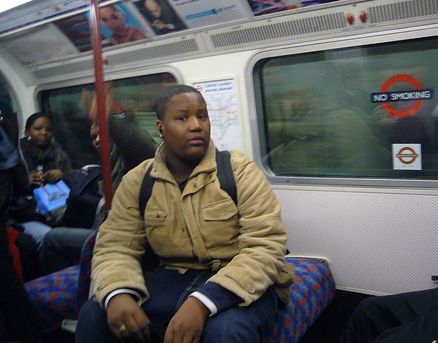We are developing the social individualist meta-context for the future. From the very serious to the extremely frivolous... lets see what is on the mind of the Samizdata people.
Samizdata, derived from Samizdat /n. - a system of clandestine publication of banned literature in the USSR [Russ.,= self-publishing house]
|
A public service warning! You surf the internet at random using FireFox (which generally you should), you may stumble across a website, which could infest your machine with a virus. But this is nothing new, I have heard about these evil websites full of Trojans and other nasty viruses and I know better… I hear you cry. Apparently, this particular attack does not require a download. Which means that is unlikely to be trapped by your anti-virus software, certainly in the short-term.
Protecting yourself for now is fairly simple. You will need to make a trivial modification to your FireFox settings.
To do this, start FireFox, enter the URL “about:config”, scroll down, and for each of the following entries make sure it is set to “true”.
If it isn’t, right-click the line and choose “Toggle”, which will set the value to “true”
network.protocol-handler.warn-external-default
network.protocol-handler.warn-external.mailto
network.protocol-handler.warn-external.news
network.protocol-handler.warn-external.nntp
network.protocol-handler.warn-external.snews
This will at least give you a warning that Firefox is being asked to do something suspicious; you will have to judge for yourself whether it is nasty.
Thanks to Alec Muffett and Geoff Arnold for the heads up and advice.
An article, found by via The Register , gives a new example of a taser self-defence device that is being marketed to women – in pink. That strikes me as pretty patronising, although maybe not deliberately so. After all, why would not any woman want a taser in a suitably no-nonsense colour like black or red? The makers of these things have obviously not met my wife.
As far as I know, use of tasers by UK citizens other than the police or armed forces is illegal (I would be interested to know what the law is in various places). There is still quite a bit of controversy about their use by the police here. Here is an article on the subject.
It will come as no surprise to regular readers of this blog that when I come to the USA, I use the opportunity to and do some shootin’ and visit my weapons-in-exile (such as one of which is featured on the Karl Popper book at the top of the page, although technically that particular 9mm weapon belongs to my fairer half, my otherwise identical piece is in .40 cal). Of course this trip was no exception and so I have been rescheduled my ongoing homages to the Yuengling Brewing Company until the evening and headed to one of the more remote parts of Pennsylvania to frighten the wild life and try to resurrect some rusty rifle and pistol skills.
 As mere possession of a handgun is illegal, it is at times like this that just how far Britain has fallen really hits home. For all its many and variegated flaws, in the USA enough people with some attachment to liberty have managed to fight off the worst excesses of those authoritarians who favour crime victim disarmament. It is interesting that many PA Democrats are actually quite pro-gun, even though many politicos in that sinkhole called Philadelphia are quite authoritarian and anti-gun (note that NRA ratings are not all that good an indication of a politician’s true position). It is good to see that the right to self-defence and to own and shoot guns is widely respected even on the political left.
However man does not live by guns alone and the USA has many other things to offer…

Apple pie and a dawg… how American is that, eh?

Big Ice Cream, Big Bikes, Short Shorts… I must be in the USA again! Back in London tomorrow. Oh crap.
I am an avid reader of science fiction, and the use of futuristic fiction as a source of ideas is a welcome development. The best science fiction is that which explores the boundaries of our concepts whether in the mind, the computer or how we relate to each other. This is one of the advantages of defending the freedom of the mind, the expression of which is usually described as freedom of speech
Anti-terror chiefs in the United States have hired a team of America’s most original sci-fi authors to dream up techniques to help them combat al-Qaeda.
Ideas so far include mobile phones with chemical weapons detectors and brain scanners fitted to airport sniffer dogs, so that security staff can read their minds.
The writers have also put government scientists in touch with Hollywood special-effects experts, to work on better facial-recognition software to pick out terrorists at airports.
The Department of Homeland Security has set aside around $10 million – one tenth of its research budget – for projects dreamt up by the best brains in futuristic fiction.
Whilst DARPA is a useful channel for futuristic ideas, ten percent of a research budget handed over to any project is not such a good idea. Once the institutional apparatus is set up, with a secretariat to flesh out the innovative ideas, and the bureaucratic accretions which turn gold to mud, what will be left. A few nuggets from the civil service quicksand.
More useful is the Sigma organisation set up by Andrew Arlen some years ago, if it survives the seductive sirenic call of the public sector:
Mr Pournelle said the facial recognition plan was one of a number that aimed to replicate ideas seen on television shows such as CSI: Crime Scene Investigation and NCIS, a similar show. "In real life, the computers are still nowhere near as good as they are on TV," he said. "It’s just one of several high risk, high pay-off projects we have suggested.
He is a member of Sigma, a group set up by fellow writer Arlan Andrews to pursue "science fiction in the national interest. Mr Andrews, who predicted handheld, electronic books long before they became a reality, said: “We spend our entire careers living in the future. Those responsible for keeping the nation safe need people to think of crazy ideas.”
How unusual that CSI, paraded as an authentic and naturalistic program, can be classified as science fiction, on the grounds that the technology deployed is probably three or five years ahead of our current capabilities. Yet, the same confusion may dazzle the Department of Homeland Security. The politicians will reach for science fictional solutions when actual success probably stems from incremental graft on current processes and clear procurement and privatisation.
Research is often touted as a PR solution for public sector problems. Treat this with scepticism.
This quote is from a year ago, January.
Virginia Tech spokesman Larry Hincker was happy to hear the bill was defeated. “I’m sure the university community is appreciative of the General Assembly’s actions because this will help parents, students, faculty and visitors feel safe on our campus.”
And this editorial was written last August.
We must give due criticism to the University for its decisions that put students in greater danger than was necessary. By that I am not so much referring to the decision to allow morning classes to take place, but rather the decades-old policy that prohibits students, faculty and staff from legally carrying firearms on campus. This ban even goes so far as to include those who have valid Concealed Handgun Permits.
For those of you who have not heard yet, 32 people died at Virginia Tech today.
Here was Virginia Tech’s solution to a mass killer on campus.
Guns cause violence, like flies cause garbage
– Zink Mitchell
This story catches the eye:
The UK’s Jedi community today expressed concerns that government plans to ban Samurai swords could hinder their freedom to wield lightsabres in public.
The UK’s Home Office today issued a consultation paper ahead of legislation intended to ban Samurai blades by the end of the year. In a bid to “protect the public”, replica Samurai swords will become illegal to import, sell and hire in Britain.
The quote marks around “protect the public” are deserved. Quite how such a ban will “protect” anyone is a mystery. The ban on handguns has not led to a dramatic fall in gun-crime, as the recent spate of shootings in London demonstrate all too plainly. If swords are banned to prevent crimes, why not go the whole hog and ban kitchen knives?
Come to that, why not take up the idea of banning opposable thumbs? Human beings – we are not a feature, but a bug!
Everything I have heard and read tells me that this kind of thing used to be true in Britain.
I live in a very small street with only eight houses, but delivery vans come down here at least twice a day. Fed Ex and that other company. People have a lot of parcels delivered by not the Post Office these days. The internet brings us gifts every day.
They bash on the door a few times, then put the parcel down and walk off. One time, a delivery man hid the parcel under our doormat. I guess he thought it was more valuable-looking than usual (true- it was Lego/s). Nobody expects parcels to be stolen from doorsteps. Everywhere I’ve lived in England, that would be insane. I never minded about crime when I lived in the UK, but that was before experiencing life in a place that feels this safe. It’s wonderful.
I heard a story from my brother-in-law about Nottingham in the thirties. Apparently, in a very poor part of town and at a very poor time, as was the practice in such places in those times, a man used to come round with a big leather bag, collecting rent, in cash. This man was not liked. People went hungry to ensure that he got his cash. But it never occurred to him or to anyone that this was a stupid thing for him to do, because it was not stupid. Anyway, one day, he left his bag in the middle of the street for some reason, full of cash, unattended. A while later he came back and collected it, untouched, all the money still there. Those were the rules.
But stories like that about long-ago Nottingham are far easier to dismiss than the contrast that Alice Bachini-Smith describes from her own direct and hugely contrasting experiences. To tell me that I am wrong about 1930s Nottingham only involves saying that the story has become exaggerated over the years, as maybe it has. To tell Alice that she is wrong means telling her that she is wrong about her own experiences. It means calling her a liar, pretty much.
As to why things worked like this in most or even all of Britain in the past and still do work like this in the more law abiding parts of America, well, that is another argument. The reasons are quite complicated, I would say. (For instance, I have long believed architectural design to be part of the story.)
I recall publishing an interesting piece for the Libertarian Alliance by the historian Stephen Davies entitled Towards the Remoralisation of Society about these kinds of arguments. This was published in 1991 but since then the story in Britain has surely changed rather little and if anything has got somewhat worse. (Here and here are some more recent writings by the same author, the former being a book that you have to buy, but the latter being a blog posting that you can actually read.)
If you’re unhappy and you know it, ring the cops.
If you’re unhappy and you know it, ring the cops.
If you’re unhappy and you know it, and you really want to show it…
If you’re unhappy and you know it, ring the cops.
If you’re unhappy and you know it, shout out loud.
If you’re unhappy and you know it, shout out loud.
If you’re unhappy and you know it, and you really want to show it…
If you’re unhappy and you know it, shout out loud.
If you’re unhappy and you know it, blow your horn.
If you’re unhappy and you know it, blow your horn.
If you’re unhappy and you know it, and you really want to show it…
If you’re unhappy and you know it, blow your horn.
If you’re unhappy and you know it, ring up again.
If you’re unhappy and you know it, ring up again.
If you’re unhappy and you know it, and you really want to show it…
If you’re unhappy and you know it, ring up again.
If you’re unhappy and you know it, jump up and down.
If you’re unhappy and you know it, jump up and down.
If you’re unhappy and you know it, and you really want to show it…
If you’re unhappy and you know it, jump up and down.
(The original version of this post was rather obscure, so I have expanded it. I also felt that a musical setting would render the advice of the Minister on how to assist an old woman being beaten up more memorable to citizens anxious to do the right thing in these difficult times.)
… on TV programmes he (quite sensibly) does not watch. Her Majesty’s Government was actually doing something about Big Brother. Granting him more arbitrary power. The Telegraph’s legal editor explains:
[The Serious Crime Bill] allows judges, sitting without juries, to make orders which, if breached, would put us in prison for five years.
Two conditions must be satisfied before the court can make a serious crime prevention order. First, the judge must be satisfied that someone has been “involved in serious crime” – anywhere in the world.
To be “involved”, you do not have to have committed a serious offence, or even helped someone else to have committed it. All you need to have done is to conduct yourself in a way that was likely to make it easier for someone to commit a serious offence, whether or not it was committed.
And what is a serious criminal offence? Drug trafficking and money laundering, of course. But also fishing for trout with a line left unattended in the water. Depositing controlled waste without a licence. And anything else that a court considers to be sufficiently serious.
Read the whole thing here. The Bill itself is here. Observers of government will notice that it is, unusually for important legislation, being introduced in the Lords. I would welcome any theories why.
A mailing from the Royal United Services Institute invites me to a conference in April:
The Critical National Infrastructure (CNI) is both the backbone and the lifeblood of the country. It comprises the assets, services and systems that support the economic, political and social life of the UK. Any disruption, damage or destruction to all or part of the CNI could result in grave consequences for the functioning of government, the economy and society. Clearly the CNI is vital to the country’s well-being but the planning and implementation of its security is a Byzantine process; the CNI is a complex and uneven environment with ownership and responsibility spread across the public and private sector.
The threats it confronts are myriad including terrorist attack, industrial accidents and natural disasters. As demonstrated during the July 7 bombings, the Buncefield Disaster, and the foot and mouth outbreak, the CNI is a labyrinthine web of interdependent vulnerabilities that requires a coordinated and coherent response across its entirety to ensure its effective security and resilience in the face of such threats.
Dangerous rubbish. This is an epitome of the statist miscomprehension of complex systems, of economies and ecologies. ‘It is messy; we must coordinate it,’ they say. There are vital things that can be identified in advance as such, and other things not necessary to the ‘backbone of the country’, they think.
But the connections in a natural web are flexible, or they don’t get established in the first place. “Interdependent vulnerabilities” are what make systems adapt, the source of resilience. In unmanaged, open, systems everything is important and everything is unimportant: all things contribute their part to everything else (and you can’t directly measure their contribution), but competition ensures they are all redundant and replaceable.
The response to 7 July was a demonstration of improvisation by thousands of separate actors – millions if you count all those who took simple decisions to get out and walk, rather than passively waiting to be evacuated by the authorities, which would have been the orderly, planned, way to do it. London was functioning again in a day, despite, not because of, the “strategic interventions” that restricted the recovery of traffic flow, and filled the streets with police.
Livestock farming in Britain almost didn’t survive the Deprtment for Rural Affairs’ “coordinated” response to the last “foot and mouth” outbreak. Fortunately at the time DEFRA lacked the powers to coordinate more farmers out of business. The department didn’t see it like that: Its plans were frustrated, and that’s why things were as bad as they were. The ‘defect’ has been eliminated by the Animal Health Act 2002 and the Civil Contingencies Act 2004.
Nobody in government had to tell Tesco’s dealers to buy up more petroleum in Rotterdam when the Buncefield depot caught fire. The state way is a ‘strategic reserve’ of petrol under armed guard somewhere, distributed eventually by rationing according to who is important enough to get it, after declaration of a suitable emergency. As it was, loss of 20% of the country’s stocks overnight caused scarcely a single car journey to be cancelled – apart from those of the people no longer commuting to the flattened industrial estate.
Those ex-commuters would not be comforted by the thought that distributing tiles or soft drinks is not “critical” and not to be guarded by the state. What they do matters to them and their customers. When I want petrol, petrol matters; when I want tiles, they matter. We are all equally made poorer by the unavailablilty of either, because we can’t predict what we will want. Nor can the state.
How dare the planners decide for me what it is I want, as they do implicitly when they define some workers, some structures, as “key”? Well there’s a confirmation bias at work. What the state can best monitor is important (invisible, uncontrollable processes couldn’t be); so those who work for it are. Chaos is bad. State plans are designed to control chaos; therefore they do, and any unfortunate or unforseen consequences are just the remnants of chaos uncontrolled. Bad things are not in the plan, so not of the plan. They are part of the failure to squeeze out doubt, never caused or exacerbated by wrong or unnecessary decisions by the authorities.
The misunderstanding at the heart of planning is a fundamentalist belief that order and simplicity are public goods. They aren’t. It may be good to have them in your own life – if you want them. It is probably necessary to have them in managing a task, running a business, playing a game; to make any well-defined single goal attainable. Clarity in shared procedural rules is highly desirable. But if we want to live in a world where the goals and threat aren’t well defined, where we have a choice, and where how we live is not vulnerable to simple shocks from unexpected angles, then universal order and simplicity are bad. Conflict and competition, difference and redundancy are good. The more disorder, uneveness, and complexity our society has, the richer our lives, and the better equipped we are collectively to meet disaster by routing around damage.
Does anyone in London know who this piece of shit is? This creep assaulted Jackie, one of our intrepid Samizdatistas, so if you recognise him, please either let us know (e-mail link is in the sidebar) or if you prefer call British Transport Police on 0800 40 50 40. For the story, see here.
|
Who Are We? The Samizdata people are a bunch of sinister and heavily armed globalist illuminati who seek to infect the entire world with the values of personal liberty and several property. Amongst our many crimes is a sense of humour and the intermittent use of British spelling.
We are also a varied group made up of social individualists, classical liberals, whigs, libertarians, extropians, futurists, ‘Porcupines’, Karl Popper fetishists, recovering neo-conservatives, crazed Ayn Rand worshipers, over-caffeinated Virginia Postrel devotees, witty Frédéric Bastiat wannabes, cypherpunks, minarchists, kritarchists and wild-eyed anarcho-capitalists from Britain, North America, Australia and Europe.
|







